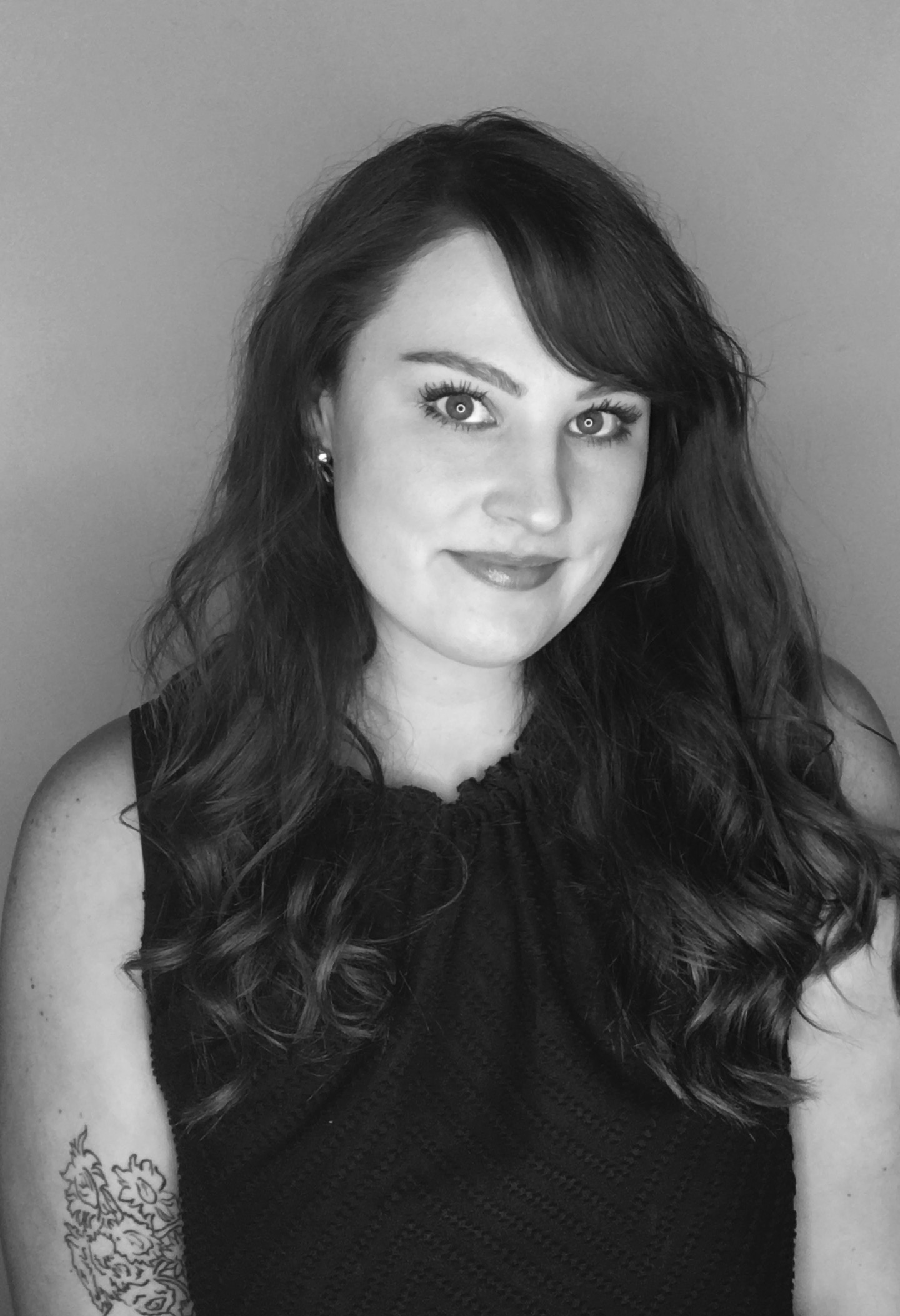Contributor Spotlight: Erin Slaughter
Erin Slaughter’s poem “Self-Portrait as Tinnitus in the Dark” is featured in Issue 75 of the Bellingham Review.
What would you like to share with our readers about the work you contributed to the Bellingham Review?
My poem “Self-Portrait as Tinnitus in the Dark” was initially inspired by a small, sort of throw-away fact a friend told me once: that when a person experiences ringing in their ears—that occasional, sudden, interruption in your hearing—it means that particular tone is dying out in your eardrum, and you won’t be able to hear it anymore afterwards. As we age, we lose the ability to hear certain tones and pitches (remember when everyone was obsessed with that ringtone with a frequency so high apparently only young people and animals could hear it?). I found this explanation totally heartbreaking. I began to think of it as that tone’s final song, or the last echo of it making itself known before it burns out. I have no idea if this “fact” has any truth to it, but it inspired me to think about something we generally understand as a casual part of human experience in terms of the things we have and then lose, and over time, don’t even realize we’ve lost.
Tell us about your writing life.
I have basically never paid attention to a math class in my entire life, instead scribbling down poems or phrases or story ideas, which, even at a young age, felt more pressing and important. I started considering myself a “writer” and became more serious about pursuing it as a career path around my sophomore year of college, when I was eighteen. It felt like a big decision at the time, because I was fearful of the looming financial instability, and the fact that people often regard English degrees (particularly Creative Writing degrees) as frivolous and overall useless. But at the same time, I’m not sure it was ever really a choice, when I think about it. I would be writing no matter what career path I’d decided on. It just feels most honest to merge my professional and academic life with the thing I consider the core part of me: a passion for words and stories.
Which non-writing aspect(s) of your life most influences your writing?
Travel to new places always seems to spark new work for me, as does nostalgia for old places. I don’t know that I could have written what I consider the best/most honest things I’ve written so far without the people in my life—so my relationships with people, especially with other writers and artists, factor in largely to the kind of work I’m producing. Otherwise, I find myself coming back to the word “forgiveness,” themes of light, and the abstract question “what will happen to us?”
What writing advice has stayed with you?
Once while writing a piece of fiction/memoir hybrid that felt incredibly raw and personal, a friend gave me the advice to “be a writer first, and a person second,” meaning to do service to the story that needs to be told, and tell it as it needs to be told, before worrying about any factors in my personal life that would affect how I or others might feel about its existence in the world. The phrase’s validity is debatable, of course, but it’s something I keep coming back to, and a piece of advice that has helped me brave my way through writing I might not have attempted otherwise.
What is your favorite book (or essay, poem, short story)? Favorite writer(s)?
My favorites when I really fell in love with books and writing still feel like my favorites, even though I don’t read them much anymore: Ray Bradbury, Zadie Smith, John Darnielle, and the “Harry Potter” series—and reading Richard Siken’s poetry collections Crush and War of the Foxes still feel like the closest thing to prayer for me.
What are you reading right now?
All of Jonathan Safran Foer’s novels, Roland Barthes’ The Lover’s Discourse, and Kaveh Akbar’s new book of poetry, Calling a Wolf a Wolf.
What project(s) are you working on now, or next?
A weird, fragmented book about light theory and love and existential authorship. Maybe a novel about a girl getting lost in a cornfield? And always, always poems.
Anything else our readers might want to know about you?
I play guitar and ukulele (badly) and if we become close friends I will almost certainly drunkenly sing to you and/or write you a song for your birthday.
Where can our readers connect with you online?
Facebook, Instagram (@erinashley23), or through the literary magazine I co-created and co-edit, The Hunger.
ERIN SLAUGHTER is the author of two poetry chapbooks: Elegy for the Body (Slash Pine Press, 2017), and GIRLFIRE (dancing girl press, 2018). She holds an MFA from Western Kentucky University, and is editor and co-founder of literary journal The Hunger. You can find her writing in F(r)iction, Bellingham Review, Sundog Lit, Tishman Review, and elsewhere. She lives in Nashville.
Featured Image: “The Broken Instrument” by atharziyamirza
